Research projects related to SELMA
Current projects:
Words for Care: Literature, Healthcare and Democracy
(Kone Foundation, 2024–2026)
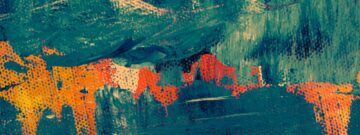
In Finnish: Sanoja terveyden tekijöille: Kaunokirjallisuus, terveydenhuolto ja demokratia
In this project, we investigate the significance of fiction and shared reading in the social and healthcare sector, which is facing crises in a society that is becoming increasingly stratified. Social and healthcare professionals are required to possess multi-level skills in expression, reading, and listening as well as the ability to perceive and acknowledge different perspectives and to understand cultural and societal contexts, along with structures of power. As more and more healthcare professionals speak a language other than Finnish as their first language, the importance of these skills is further emphasized.
The starting point of our project is the idea, based on narrative medicine and cultural language learning research, that reading fiction together, and discussing and writing about what is read, supports individuals’ cultural, linguistic, and narrative competencies, as well as their sense of professional and societal belonging. The project expands literary and narrative research to the lives and work of professionals in different fields.
We develop applied literary research and create a new narrative medicine reading circle method, which can be utilized by healthcare professionals who speak Finnish both as a first or as a foreign language. We investigate, through interdisciplinary qualitative methods, the experiences of those participating in reading circles and the meanings they attribute to shared close reading of fiction and reflective writing.
Narrative medicine and cultural language learning methods have great potential to support narrative, cultural, and linguistic skills, which are also considered prerequisites for societal agency and democracy (Dewey; Rosenblatt; Nussbaum). The project brings together these perspectives for the first time and offers a new research-based way to address the transformation of the social and healthcare system and its impacts on society.
The project is led by Professor of Finnish Literature, Viola Parente-Čapková, and includes scholars Riitta Jytilä (PhD, Adjunct Professor), Laura Karttunen (PhD), Niina Kekki (MA), Anna Ovaska (PhD, M.Soc.Sc.), Elina Renko (PhD, M.Soc.Sc.), Carita Roivas (MA), Jussi Valtonen (PhD), Sonja Sulkava (M.D.), and author Alexandra Salmela.
Counter-Narratives of Cancer: Shaping Narrative Agency
(The Research Council of Finland, 2023–2027)
 Counter-Narratives of Cancer: Shaping Narrative Agency examines different ways of narrativizing cancer. We analyse culturally dominant cancer narratives and counter-narratives that challenge them. The research data consists of literary fiction, life-writing, media texts, and texts produced in bibliotherapeutic groups and narrative agency workshops.
Counter-Narratives of Cancer: Shaping Narrative Agency examines different ways of narrativizing cancer. We analyse culturally dominant cancer narratives and counter-narratives that challenge them. The research data consists of literary fiction, life-writing, media texts, and texts produced in bibliotherapeutic groups and narrative agency workshops.
We reconceptualize cancer in terms of the idea of illness as an unforeseen ability that allows confronting the randomness and connectedness of life. The project enhances public awareness of different ways of narrating cancer and participates in creating more capacious cancer imaginaries that open up new possibilities of agency.
The project’s themes include 1) Master and counter narratives of cancer; 2) Cancer patient’s grief and the grief of the dying; 3) A new model of bibliotherapy and narrative agency workshops; 4) Narrative agency analysis as a new qualitative method; and 5) The Archive of Loss.
The project is led by the director of SELMA, Professor of Comparative Literature Hanna Meretoja, and includes scholars Dr. Astrid Joutseno/Swan, Dr., Professor Markku Lehtimäki, Dr., adjunct professor Päivi Kosonen, and MA Eevastiina Kinnunen.
A grove of stories – Sagalund.
A home museum as an environmental biography
(Svenska Kulturfonden)

This project combines research and art in order to study what remains from a life lived in the past. The focus of the research lies in the archipelago of Turku, on Kemiö island and the museum surroundings of Sagalund. Sagalund was built by a local teacher Nils Oskar Jansson, and in this research project both Jansson and other local teacher Adèle Weman and their home museum as well as the garden and nature surrounding the museum area are in the forefront of analysis. Sagalund offers a unique possibility to study archipelago milieu, many layers of cultural heritage and its cultural meanings.
The aim of this research project is to study the rich cultural historical material and environment from an environmental humanities and life writing studies perspective. Methodologically the project constructs the idea of environmental biography at home museum surroundings. In addition, the project combines artistic work into research as it includes an artist who will paint the museum milieu and its details in her paintings. These paintings will add yet another layer to the processes of cultural memory that the home museum constitutes. There will also be a documentary film made on the whole research and artistic process – it will capture the moments of research and painting, but also document the home museum and its nature milieu in a unique setting.
The project is led by the vice-director of Selma, professor of cultural history Maarit Leskelä-Kärki, and scholars PhD, lecturer Otto Latva, PhD Karoliina Sjö, PhD Katja Weiland-Särmälä as well as artist Erika Adamsson and documentarist Aleksi Kauppinen form the research group. The project combines new environmental humanities and life writing scholarship, and thus strengthens these thematic fields at the University of Turku in close co-operation of the nearby archipelago area: “Cultural memory and social change”, “Biodiversity and sustainability” samt “Sea and maritime studies”. The project received its first funding from Svenska Kulturfonden in March 2023.
Intersectional Reading, Social Justice, and Literary Activism (INTERACT)
(KONE Foundation, 2022-2025)
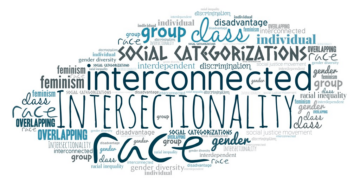 Reading has become a major focus of contemporary discussions on social justice. Recently, reading-related activism has developed under many forms, however, there is no academic research on activist reading. In this project, based at the University of Turku and funded by Kone Foundation, our aim is to create solid research-based methods for activist reading. We understand activism as a sensitive move towards gradual, small changes. We emphasize the meaning of microactivism, long-term analysis and concentration on everyday structural inequalities; we envision intersectional reading as a mode of intimate activism in order to increase equality.
Reading has become a major focus of contemporary discussions on social justice. Recently, reading-related activism has developed under many forms, however, there is no academic research on activist reading. In this project, based at the University of Turku and funded by Kone Foundation, our aim is to create solid research-based methods for activist reading. We understand activism as a sensitive move towards gradual, small changes. We emphasize the meaning of microactivism, long-term analysis and concentration on everyday structural inequalities; we envision intersectional reading as a mode of intimate activism in order to increase equality.
Indeed, as several scholars have pinpointed, intersectionality is both a theory and a mode of activism committed to social justice. Originating from the long tradition of Black feminist social movements and literature, intersectionality today is a research
tool that conceptualizes the multiple, relational and complex power dynamics connected to race, ethnicity, gender, sexuality, class, able-bodiedness, age, social status, species, or any such factor that is relevant to our socio-cultural experiences. Intersectionality analyzes how those factors locate people differently in our social and cultural reality, especially in relation to societal structures of inequality.
Our project examines the ways literary studies might enable Intersectionality’s potential in understanding and unraveling those situated differences. Thus, the project tackles the challenge of inequality by imagining forms of literary activism. Our focus is to create intersectional reading practices that enable its potential in increasing social justice and educational democracy.
The project is led by Kaisa Ilmonen (PhD, Adjunct Professor) and includes researchers Kaiju Harinen (PhD), Marta-Laura Cenedese (PhD, Adjunct Professor), Lotta Luhtala (MA), Liisa Merivuori (MA), Koko Hubara (MA), and A. Khodyreva (MA).
Selected past projects:
Nordic voices: The use of oral history and personal memories in public history settings (2022-2024)
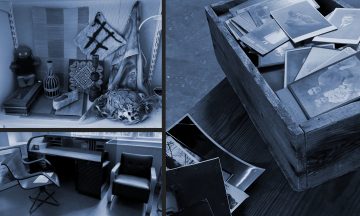 NORDIC VOICES seeked to increase the use of oral histories, life narratives and personal memories in Nordic cultural institutions by collaborating with leading experts from both academia and various cultural institutions. Compared to many other countries, the use of personal sources in Nordic cultural institutions and online archives is limited, because all the Nordic countries have strict personal data acts.
NORDIC VOICES seeked to increase the use of oral histories, life narratives and personal memories in Nordic cultural institutions by collaborating with leading experts from both academia and various cultural institutions. Compared to many other countries, the use of personal sources in Nordic cultural institutions and online archives is limited, because all the Nordic countries have strict personal data acts.
The first NORDIC VOICES workshop “Oral history and personal testimonies in museums” was be held in autumn 2022 in Copenhagen, Roskilde and Malmö. The second workshop “Oral histories, life stories and analysing significance in museums” was held in autumn 2023 in Turku and Paimio. Additionally two online workshops were held, the first “Significant literature on personal testimonies as museum communication” in spring 2022 and the second “Sustainable and transformative futures of memory practices and institutions” in spring 2023.
Instrumental Narratives (Academy of Finland, 2018-2022)
in a Consortium with Tampere and Helsinki
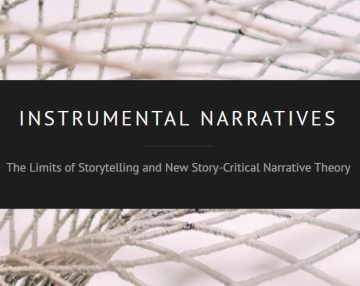 The Academy of Finland project “Instrumental Narratives: The Limits of Storytelling and New Story-Critical Narrative Theory” developed ideas and analytical instruments that will equip researchers, professional groups and non-academic audiences to navigate today’s social and textual environments that are dominated by storytelling. We put contemporary literary fiction in dialogue with the manipulative stories that spread around the internet, in order to reveal the dubious relationship that some narratives have with identity, truth, politics, and complex systems such as climate change.
The Academy of Finland project “Instrumental Narratives: The Limits of Storytelling and New Story-Critical Narrative Theory” developed ideas and analytical instruments that will equip researchers, professional groups and non-academic audiences to navigate today’s social and textual environments that are dominated by storytelling. We put contemporary literary fiction in dialogue with the manipulative stories that spread around the internet, in order to reveal the dubious relationship that some narratives have with identity, truth, politics, and complex systems such as climate change.
In order to confront these issues, we focused on revealing the sophisticated story-critical ideas and techniques offered by works of contemporary fiction. The project brought together the nationally leading and internationally renowned scholars of narrative at the Universities of Tampere, Turku and Helsinki. The Turku team, hosted by SELMA, focused particularly on identity work, therapeutic uses of literature, and story-critical metanarrativity in contemporary fiction. Its Principal Investigator was Hanna Meretoja, and the research team included Marta-Laura Cenedese, Colin Davis, Johanna Kaakinen, Päivi Kosonen, Anu Laukkanen, Maarit Leskelä-Kärki, Nena Mocnik, and Jouni Teittinen.
#NeverAgain: Teaching Transmission of Trauma and Remembrance through Experiential Learning
Funded by European Commission (Europe for Citizens – European Remembrance Strand)
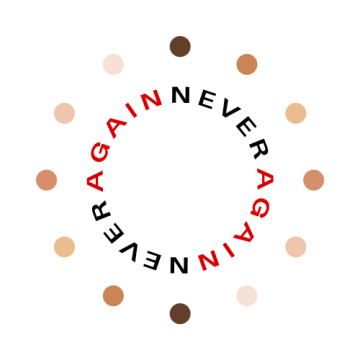 In September 2018, SELMA: Centre for the Study of Storytelling, Experientiality and Memory at the School of History, Culture and Arts Studies (University of Turku) launched an interdisciplinary project “#NeverAgain: Teaching Transmission of Trauma and Remembrance through Experiential Learning,” a Europe wide initiative funded by the European Commission (Europe for Citizens – European Remembrance Strand).
In September 2018, SELMA: Centre for the Study of Storytelling, Experientiality and Memory at the School of History, Culture and Arts Studies (University of Turku) launched an interdisciplinary project “#NeverAgain: Teaching Transmission of Trauma and Remembrance through Experiential Learning,” a Europe wide initiative funded by the European Commission (Europe for Citizens – European Remembrance Strand).
Over 18 months, the project aimed to address the concealed hatreds, prejudices and normalized oppressions that are learnt through the unhealed and transmitted traumas perpetuated in our everyday lives through seemingly harmless everyday practices. The project partners from Finland, Denmark, Bosnia-Herzegovina, Romania, Germany, Lithuania, Poland, and Italy developed and delivered 4 clusters of local events within their communities to test experiential learning tools (ELT) in order to experience the harmful effects of transmitted collective traumas and how they impact the continuation of hatreds and vengeance today.
The project’s events brought together around 450 students and teachers and additional 500 community members as invited audiences and influenced numerous other individuals by using event hashtags on the social media and online platform. The processes and outcomes were presented at “#NeverAgain: Teaching Transmission of Trauma and Remembrance through Experiential Learning”, a workshop-based conference in June 2019, hosted by University of Turku. In the dissemination phase, we developed and launched a transnational blended education platform, offering different in-class experiential didactic methods and online webinars and didactic videogames. The Project Leader was Professor Hanna Meretoja (Director of SELMA: Centre for the Study of Storytelling, Experientiality and Memory) and the Project Manager was Dr Nena Močnik (SELMA Postdoctoral Researcher).
Uuden etsijät. Esoteerisuus ja uskonnollisuuden murros suomalaisen sivistyneistön parissa 1880-luvulta 1930-luvulle
led by Maarit Leskelä-Kärki
The Experience of History and the Ethics of Storytelling in Contemporary Arts (2013-2015, funded by the Emil Aaltonen Foundation)
led by Hanna Meretoja
